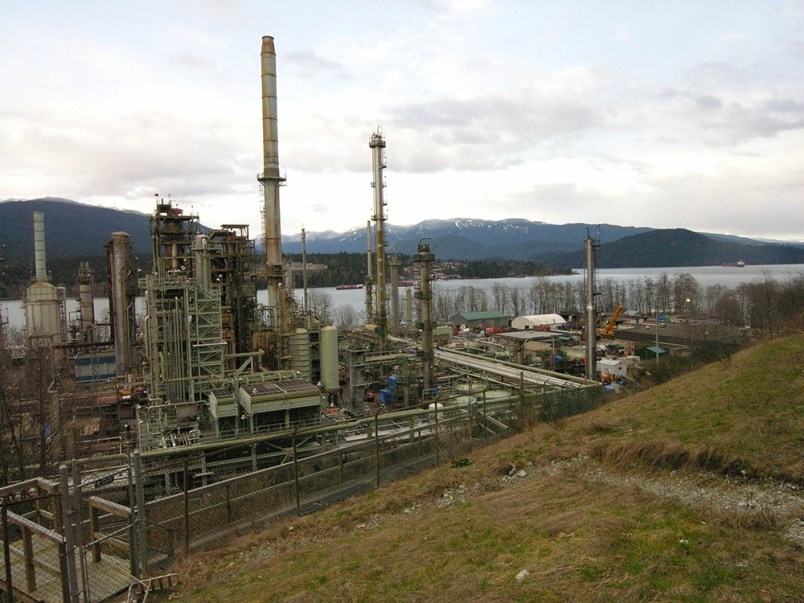Chevron Canada Ltd.’s Burnaby refinery is under new ownership.
As part of a $1.46-billion deal announced on Tuesday, Parkland Fuel Corp. has acquired all of Chevron’s downstream assets in Western Canada, including the facility at the end of the Kinder Morgan pipeline. The refinery processes 55,000 barrels of oil per day.
Parkland is also getting 37 commercial cardlock stations, three marine fueling stations and 129 Chevron-branded retail service stations, in addition to the 44 it’s already operating in eastern B.C. The company is also taking over aviation fuel sales to the Vancouver International Airport.
The deal makes Parkland Canada’s largest fuel retailer, with over 1,800 pump stations, according to Bob Espey, Parkland’s president and CEO.
“The opportunity with this business (Chevron) is it’s really in an area where we don’t have a lot of presence, so it allows us to expand our footprint into a great market, with a great set of assets, with a great set of employees that underpin that,” he told the NOW.
Parkland is “really excited” to the get the Burnaby refinery, said Espey, noting all staff – unionized and non-unionized – will be offered employment.
“It has the best supply position in the Vancouver market, and we certainly need the current team to run the business, and are quite excited to welcome them to Parkland,” he said.
Russ Day, president of Unifor Local 601, which represents 150 refinery workers, called the news “encouraging.”
“We haven’t heard from Parkland directly,” he said. “We’re under the assumption that that’s true. It sounds like it’s a wholesale transfer of the existing business.”
But Day admitted he was somewhat surprised by the transaction. He said the Calgary-based company is “an unknown entity in the refining business.”
“We’re used to dealing with large multi-nationals when it comes to refining so, obviously they’re new to the game, and so it was a bit of surprise in that sense,” he said. “They’re in the marketing end of things, but the refining end is obviously new to them, so we don’t really know much of them as an employer at this point. ... We’ll just wait and see how things turn out.”
Parkland has owned one refinery in central Alberta years ago, according to Espey.
“A lot of our team has had experience in integrated oil companies and certainly understands the intricacies of a refinery. Again though, we’re really pleased and welcome the (current) team because we do need that expertise to run the refinery on an ongoing basis,” he said of Day’s comments.
The billion-dollar-deal comes at “an interesting time,” said Day, because the union is in the middle of collective bargaining and has “some fairly big-ticket items.”
“It may present some challenges in that respect. Things like benefits for instance, some seniority-related issues. ... Obviously Parkland will be inheriting all that.”
Parkland plans to fund the deal via a $660-million bought-deal share offering, a $500-million bridge loan and other sources of cash.
“On that $660 million, we were oversubscribed by $2 billion dollars, so a lot of interest by the investment community to support our acquisition of the Chevron business,” said Espey. “We’ll be doing a bond offer in the next couple of days, In essence, we’ll have it fully funded here by the end of the week.”
The transaction is expected to close by the end of 2017.
Chevron still holds on to its proposed Kitimat LNG facility, its upstream assets and its lubricants business.



